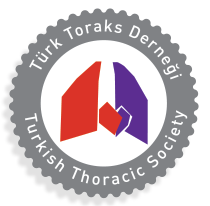Abstract
Objectives:
Despite the fact that it is a common infectious disease, there is negative prejudgement among hospital stafff and society against patients with tuberculosis. The aim of this study is to evaluate the knowledge level of healthcare workers
Methods:
In a University Hospital in Northern Cyprus, a questionnaire about route of transmission, clinic and prevention of tuberculosis was administered to the health care workers
Results:
A total of 308 subjects were included in the study; there were 235 women (76.3%) and 73 (23.7%) men. 94,2% of the cases reported that they have knowledge about tuberculosiş. The symptoms of tuberculosis such as cough and hemoptysis were well known. There was lack of knowledge about constitutional symptoms such as malaise, loss of weight and night sweats. It was well known that tuberculosis is a treatable disease (90.1%), and its notification is mandatory (89.1%), but the routes of transmission and the decrease in contagiousness soon after treatment initiation were’nt well known(24.8%).There was no difference between genders regarding of knowledge level about tuberculosis. The participants who have an education level below high school have less awareness about droplet transmission when compared with the university graduates. (49.1%vs 80%, p=0.001). The most common source of information about tuberculosis was hospital education (58.1%) and physician informing (43.5%). After contact with tuberculosis patients, 88.5% of cases possess concern about contraction of disease, 87.1% of cases possess concern about the possibility of transmission of the disease to their family. 81.1% of cases stated that they will refer to a pulmonologyst for testing. Half of the participants thought that there is need to start prophylactic treatment in case of contact with tuberculosis patient.
Conclusion:
We observed that there is lack of knowledge about tuberculosis among healthcare professionals. Continious education programmes must be set up to raise awareness.



